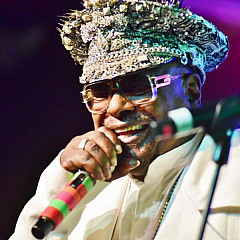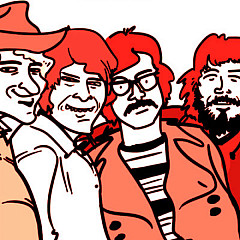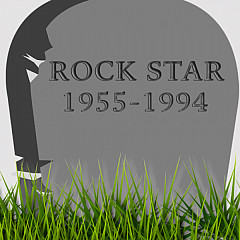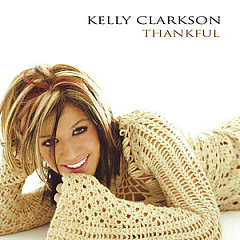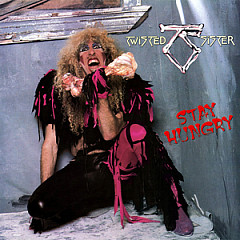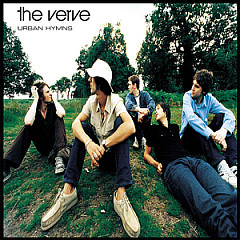
Through his archive of interviews with songwriting legends, renowned music journalist Bruce Pollock tells their stories in their own words. This is taken from his 1974 interview with John Prine.
Before succumbing to the coronavirus, John Prine had made a career out of beating the odds. He survived cancer twice. Going head to head in 1971 and '72 with Dylan-influenced folksy singer/songwriters, among them Loudon Wainwright, Danny O'Keefe, Paul Simon, Jackson Browne, Neil Young, Melanie, his mentor Kris Kristofferson, Harry Chapin, Lou Reed, Joni Mitchell, James Taylor, Don McLean, his pal Steve Goodman, Townes Van Zandt, and Dan Fogelberg, with Bruce Springsteen looming around the corner, the unassuming singer gained a foothold that would last a lifetime with his first album. His introductory work contained some of his most beloved, powerful, and covered songs: "Angel From Montgomery," "Paradise," "Sam Stone," "Hello In There," and his personal favorite, "Far From Me."
Fusing his country and western background with a rock beat and folk sensibilities, Prine's songs focused on life's little people and their poignant mini-dramas. But over the course of his career some big stars were drawn to them, including Bette Midler, Bonnie Raitt, Johnny Cash, the Flying Burrito Brothers, R.E.M., Joan Baez, the Everly Brothers, John Denver, John Fogerty, and Jackie DeShannon. Although he never had a hit single, "Angel From Montgomery" has been covered at least 40 times, "Paradise" 33, "Sam Stone" 13. His last album, The Tree Of Forgiveness, from 2018, was his first to reach the Top 5 of the albums chart. He won two Grammy awards as well as a Grammy Lifetime Achievement Award earlier in 2020.
My interview with John Prine took place in 1974, at a restaurant in New York City. The usually shy and taciturn ex-postman warmed easily to the subject at hand, becoming quite verbose... sometime around the third drink, when we got around to discussing the Dylan influence. "I first heard about Dylan when my brother told me the guy who wrote 'Blowin' In The Wind' sounded a lot like Jack Elliot. And I liked Jack Elliot a whole lot. I never did take Dylan's stuff word for word, though. I always liked the whole balance of it, the whole feeling of it. I never knew one song all the way through, but I liked it that way and wanted to keep it that way because I thought it was a nice way to take the songs. Particularly when a lot of people went real overboard, picking the vowels apart and everything."
Mood and feeling dominate the works of John Prine as well. "In general I'd say it's not subjects I'm trying to pinpoint, it's different moods," he told me. "I'm trying to find a situation that would fit the mood. I'm more interested in the framework. A lot of times I'll pick the form before I write the song, because otherwise you run out on too many tangents. If you happen to run out on a good tangent, fine... then you can start all over again with that."
This leads to a lot of free writing and free association. "A lot of stuff has come out of just writing a couple of pages and rambling on, going from one mood right into another. Then I put it away and if I wait long enough I pull it back out and the good lines stay there and the others just fall right off the page.
"You can't tell the good lines from the bad lines right at first sometimes. It's a matter of editing. I happen to type at the same speed I edit, so a lot of times I can knock out stuff while I'm typing it. Once I had about three-quarters of a page that I got three songs out of. It was a stream-of-consciousness thing that didn't make any sense at all as it was. That's why I made it into three different songs.
"I do have a lot of stuff that's half finished. I've got a song that I've been working on for a year and a half. The first part of it came out in like three seconds, the first verse and chorus. I can't get any further than that and keep up with the original theme of it, so I have to keep going back to it until I get it right. I really hate to stop when I start with an original idea, because it's really hard to pick up on it again. It's possible, but it's real difficult.
"'Mexican Home' on the third album [Sweet Revenge, 1973] took me two and a half years. I had to end up changing the melody in order to finish it. The old melody had been finished first and I couldn't fit the second half of the song into it, so I changed the entire melody and wrote new words for it. Of course, now I have the original melody for some new words, and it's a good one.
"In most of the ballad stuff I do I try to use a chorus like a needle and thread, to pull the song together. A lot of times I've written just with the idea of experimenting. Like with 'Donald And Lydia,' I had no idea what I was going to write about, but I knew how I was going to set the song up. I was going to set it up character by character."
This observation segued into a discussion of how he creates his characters. "The names mean a lot, like Loretta in 'Hello In There.' I wanted to pick a name that could be an old person's name, but I didn't want it to stick out so much. People go through phases one year where a lot of them will name their kids the same, so I was just thinking that it was very possible that the kind of person I had in mind could be called Loretta. And it's not so strange that it puts her in a complete time period. Any of the names I've ever put in a song I've spent a lot of time on. In 'Donald And Lydia' I was looking through a baby book, starting with Andrew down through Zeke. I was hollering them out like a mother calling her kids in for lunch. Take Rudy, from 'Hello In There.' We used to live in this three-room flat and across the street there was this dog who would never come in and the dog's name was Rudy. And the lady used to come out at five o'clock every night and go 'Ru-dee! Ru-dee!' And I was sitting there writing and suddenly I go 'Rudy! Yeah! I got that.'"
While Prine didn't really start writing songs until he got in the Army, he was developing his writerly skills much earlier than that. "In school the only thing I used to be able to do at all was when they gave me a free hand at writing dialogue," he said. "Writing nothing but dialogue. Everybody else, all these kids who were straight-A students, would just bang their heads against the wall, and I'd just go, whoosh, and hand it in. The teacher would say 'Who'd you buy this from?' because I was a horrible student otherwise.
"When I started to play guitar I found that the easiest way for me to put a story down was as a song. My brother always used to hear my stuff because he taught me how to play guitar. He also taught himself how to play the fiddle, so I'd have to sit with him and play rhythm guitar. I'd sit with him for hours. If you've ever heard anybody teach himself how to play fiddle, it sounds horrible. But in return he'd listen to my songs. It was easier for me to write a song than to learn somebody else's. I'd never play them for anybody else. A lot of times I never wrote them down, but they were in ballad form. I'd just sing them until I got sick of them."
In the meantime, aside from his brother, his constant companion was the radio. "The people who made the biggest impression on me as lyricists were Hank Williams, Dylan, and Roger Miller, because he managed to write humorous songs that weren't novelty songs, and I hadn't heard anything like that. Then I didn't hear anything until Kris Kristofferson came along. I can remember my first contact with his stuff was an article where they had some of his lyrics. And these lyrics carried their own melody. He writes like he's got a meter built inside of him. I asked him once if he worried that much about meter and he said, 'I just throw in 'oh Lord' if it doesn't balance out.'
"Jimmy Webb has written some real nice stuff. A lot of people in Nashville have excellent ears. They're Tin Pan Alley writers, but they're good at it. The Beatles wrote songs that flowed like Chuck Berry stuff and Buddy Holly stuff, which I'm sure they were very aware of when they wrote them. Of all the people I admired I never found anybody that I thought was saying exactly what I wanted to say, and that's why I wrote. But my first reaction was that I thought there must be something wrong with my songs, because they were a lot different from the stuff I'd heard. I thought if they're that much different, then why hasn't someone done them before?
"I wrote a couple of songs in the Army, but still mostly humorous stuff. It was after I got out of the Army that I started writing anything serious. I'd sing them at first for friends, and they were encouraging, but I always felt like I was imposing on them. I never thought of selling songs until about a year before I went on the stage."
When asked about his struggle to gain credibility as a writer, Prine had some strong opinions. "When you're an amateur and you're writing songs, everybody is going to have some sort of criticism. They've never criticized a song in their life and you say, 'Hey, I wrote this,' they'll say, 'Well, that one part there needs changing.' So, I tried to write songs that nobody could possibly criticize. But after doing that, and after recording and everything, I still have people come to me and tell me they loved a song for the wrong reasons. They really didn't understand it at all. I thought the songs were basically self-explanatory, but they weren't. So, I just went ahead and let people like them for the wrong reasons. But I figured, I don't really have to knock myself out to explain things. I can be a little more abstract.
"A song is not finished until I consider that I'd do it for anybody. But when I finish it, right there and then it's certified. I've heard other writers give suggestions years later about changing a line or something, but once I finish a song - this is even before I record it - I figure it's like a book on a shelf. It's already done and I can't do anything about it. When you hear somebody else do the song, that's when you get a chance to criticize lines that you wrote. Whenever I hear my own records, I know it's my voice. I'll end up listening to the arrangement. But when I hear it done by somebody else, sometimes it brings up lines I thought before were just a link between two other lines, and all of a sudden that line stands out, depending on how someone interprets the song.
"Another thing, and this is a result of being a recording artist. Around the time a record is finished I refuse to write for at least a couple of months, even if I feel like it. Mainly because a lot of people haven't heard the new stuff, and I'll be going around doing it, and it's impossible for me to have a song finished and not go out and perform it. It's impossible for me to keep it locked up for six months or more."
April 9, 2020
More Legends of Songwriting:
Randy Newman
Laura Nyro
Lou Reed
More Songwriting Legends


